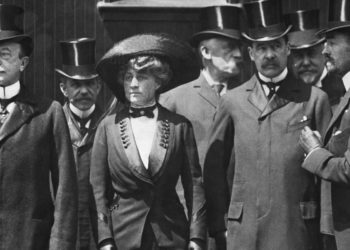A Malaysian court on Friday dropped money-laundering charges against former Prime Minister Najib Razak, who is in prison for stealing millions of dollars from a government fund, saying prosecutors were not ready to proceed with the case even though they had filed the charges six years ago.
The court issued what is called a discharge not amounting to an acquittal, meaning Mr. Najib could face those charges again. But that is unlikely, and the move fueled criticism that the authorities were being lenient with the former prime minister, who remains a political force.
Mr. Najib, 71, was ousted from office and eventually convicted of graft in 2020 in the fallout from the looting of a multibillion sovereign wealth fund, 1MDB. The scandal also led to legal action in the United States because of the involvement of the investment bank Goldman Sachs.
But last year, Mr. Najib’s prison sentence was halved to six years and his fine reduced to $11 million, a quarter of the original. Since then, Mr. Najib has been petitioning the courts to serve the remainder of his term, which ends in 2028, at home. In November, charges of misappropriating public funds against Mr. Najib were dropped because of prosecutorial delays.
Mr. Najib’s shifting legal fortunes have become a lightning rod in Malaysia.
To his critics, they are a sign of the weakness of the current prime minister, Anwar Ibrahim, who campaigned on anti-graft platform but took office only after forming an alliance with Mr. Najib’s party, the United Malays National Organization. Mr. Anwar has repeatedly denied any involvement in Mr. Najib’s legal cases but recently hinted at his priorities.
“I have no interest in jailing people,” Mr. Anwar said in a speech last Saturday. “I’m interested in recovering the money so it can be returned to the people.”
To Mr. Najib’s supporters, the legal reprieves are a sign that he has been a victim of political prosecution.
On Friday, the High Court in Kuala Lumpur, the capital, granted Mr. Najib a discharge not amounting to an acquittal, or D.N.A.A., for three money-laundering charges tied to more than $6.3 million linked to SRC International Bhd, which was a subsidiary of 1MDB.
Faisal Aziz, the chairman of Bersih, an electoral reform group, said the public deserved an explanation for what he described as prosecutorial incompetence. He called on Mr. Anwar’s government to expedite its promise to separate the public prosecutor’s office from the attorney general’s chambers, allowing prosecutors to carry out their duties independently and free from political influence.
Under the Malaysian law, the attorney general is appointed by the king on the advice of the prime minister.
“If the attorney general had handled the case with accountability and responsibility, Mr. Najib would not have been granted a D.N.A.A.,” Mr. Faisal said. “The law must be amended so that the power to prosecute must be given to an independent prosecution.”
Mr. Najib is still awaiting a verdict in a case related to the 1MDB scandal, from which billions remain missing.
The post His Prison Term Halved, Former Malaysia Leader Wins Another Reprieve appeared first on New York Times.




